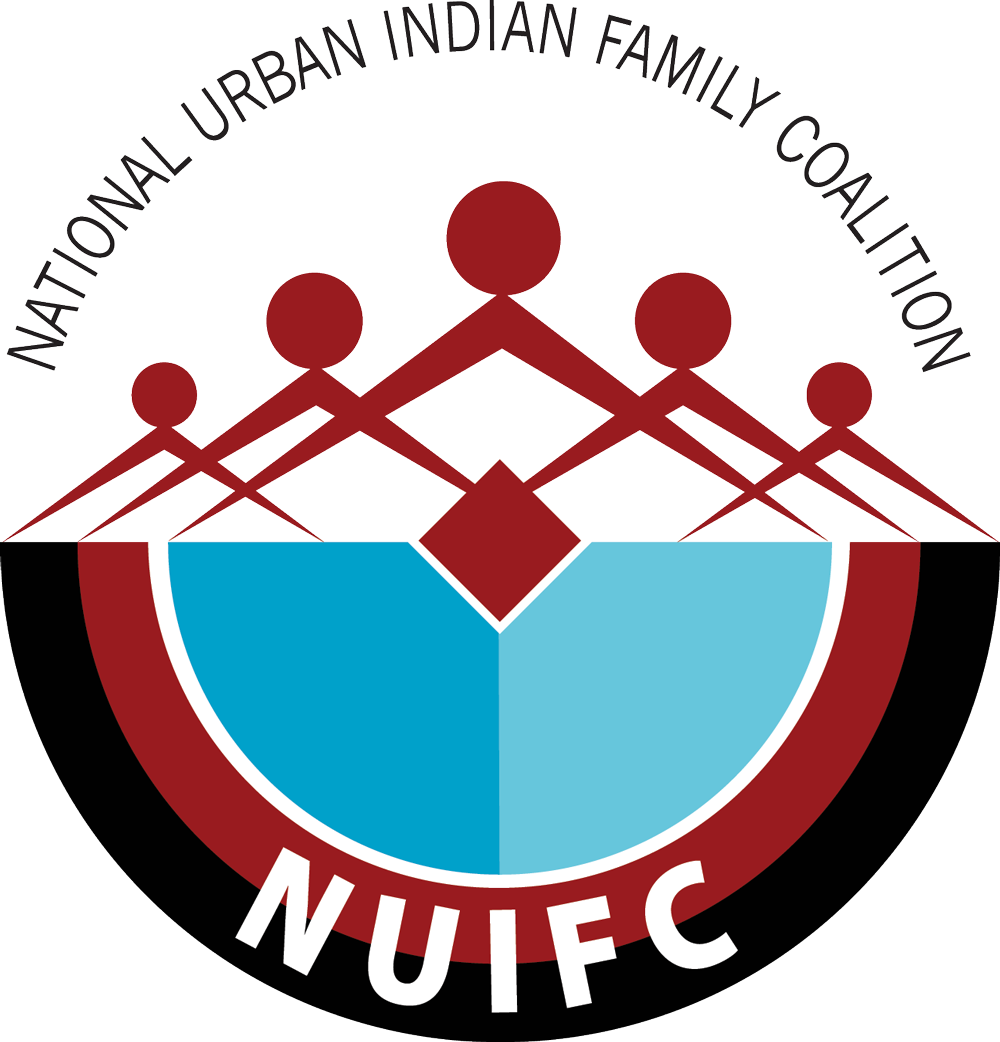NUIFC Press Release // Groundbreaking Report Highlights the Impacts of COVID-19 on Urban American Indian & Alaska Native Organizations
CONTACTS
Janeen Comenote, Executive Director
National Urban Indian Family Coalition
jcomenote@nuifc.org, 206-551-9933
FOR IMMEDIATE RELEASE
April 23, 2020
Groundbreaking Report Highlights the Impacts of COVID-19 on Urban American Indian & Alaska Native Organizations
National Urban Indian Family Coalition releases report “Resiliency in Crisis: The Impact of the COVID-19 Pandemic on the Urban American Indian Nonprofit Sector.”
SEATTLE, WA — The National Urban Indian Family Coalition (NUIFC) released an unprecedented report on the COVID-19 pandemic's impacts on some of the largest American Indian and Alaska Native (AI/AN) communities in the country. The report examines how the pandemic is impacting a majority of AI/AN people (more than 70% live in cities and urban areas). Urban AI/AN communities have experienced decades of underinvestment, generations of forced assimilation, and systems designed to perpetuate generational poverty and disparate outcomes for all quality of life indicators. Unfortunately, the COVID-19 pandemic exponentially exacerbates these issues. Without adequate resources and relief, the country’s largest AI/AN communities will see unprecedented levels of socioeconomic decline.
“This unprecedented report is crucial as these American Indian organizations reset to meet an ever-developing need around COVID-19 in urban areas.”
In response, the NUIFC initiated a national survey to better understand the growing needs, negative impacts, and disastrous consequences facing these communities and the American Indian organizations that serve them. With 45 organizations participating in the survey, each one indicated that the COVID-19 pandemic had delivered a significant blow for their communities.
“This unprecedented report is crucial as these American Indian organizations reset to meet an ever-developing need around COVID-19 in urban areas,” states Patti Hibbler, President of the NUIFC board of directors and Executive Director of the Phoenix Indian Center. “Their ability to meet this need, as a hub for urban-living American Indians, is truly a matter of life and death, and their future existence is dependent upon decisions and funding made today.”
Unfortunately, a small percentage of federal and philanthropic funding reaches urban AI/AN communities. When resources do come, they are rarely, if ever, designed to address the unique needs and challenges of urban AI/AN people. While urban AI/AN communities were born out of resilience and courage, the COVID-19 pandemic has dealt a devastating blow to the only organizations that have provided safety, stability, and security for decades.
“We initiated this report to learn about the immediate impacts of the COVID-19 pandemic directly from those on the frontlines,” said Janeen Comenote, Executive Director of NUIFC. “In March 2020, we launched a national survey targeting our network of members, partners, and grantees. We wanted to hear directly from organizational leaders about the issues and impacts their communities were experiencing on the ground.”
The NUIFC surveyed 45 urban American Indian organizations in 24 cities, which revealed:
Nearly 1.7 million Native people live in just these 24 cities, a stunning 32% of the entire AI/AN population
$9.9 million in organizational revenue was lost in 30 days
Combined, these organizations impact over 500,000 Natives living in cities and metropolitan areas
Employment, housing, and food security, already problematic for our communities, are the top three issues that will be exacerbated for urban Native communities due to the looming economic shutdown.
The “Resiliency in Crisis” report not only highlights the negative impacts of the COVID-19 pandemic on AI/AN communities and organizations, but the NUIFC also used the findings to formulate a set of recommendations for sound federal and philanthropic relief to best support the most vulnerable. The recommendations focus on investments that address immediate and ongoing disruptions of service and programming in the areas of employment services, housing security, food security, and mental health services. If the report’s recommendations were to be enacted, not only could these urban AI/AN organizations stem the most profound adverse impacts from hitting their operations, but they might actually reverse this negative slide.
The NUIFC believes the report will provide critical insight for philanthropic leaders, policymakers, and elected leaders on how to support urban AI/AN communities and better coordinate relief funding and investments so that urban AI/AN organizations will be better positioned to continue their work protecting and sustaining urban American Indian communities so that families, youth, and elders may endure this global pandemic, the ensuing global economic crisis, and emerge more resilient and better able to thrive.
National Urban Indian Family Coalition
The mission of the National Urban Indian Family Coalition is to elevate a national voice and sustain Indigenous values and culture through a strong network of urban Indian organizations.
We accomplish this by conducting research, facilitating dialogue, and creating opportunities to better understand the barriers, issues, and opportunities facing urban American Indian families. Ultimately, we seek to strengthen the voices of urban American Indian peoples and their access to resources. By including NUIFC members in these critical conversations and including Urban Indian issues in a national dialogue regarding Native America, we ensure that the concerns of our families are addressed and that urban issues are included in national policy work. Learn more by visiting www.nuifc.org.
###


